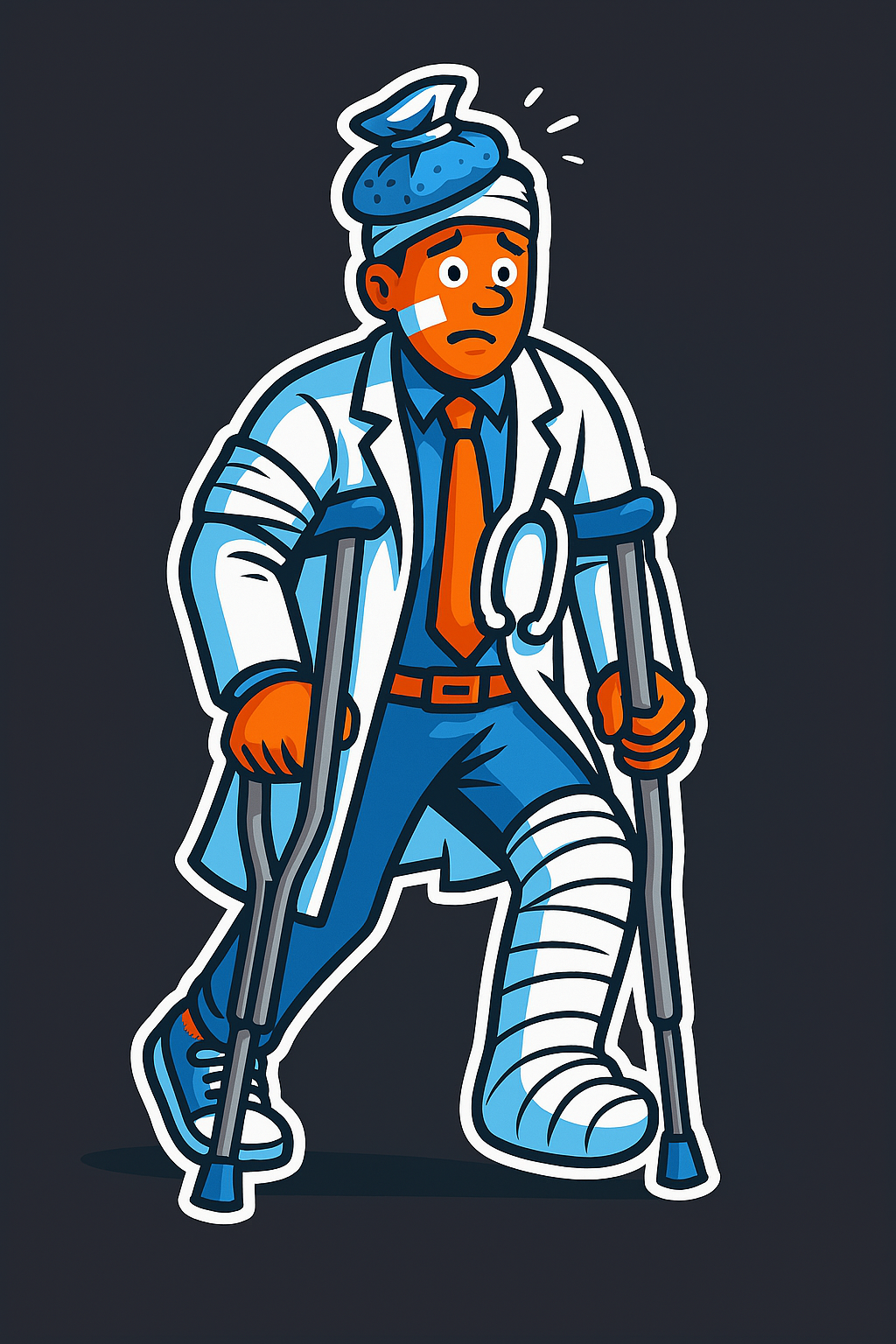Well, as expected, I was royally wrecked this week. Apparently, five hours of intense plyometrics for a guy pushing 30 comes with a receipt—and this week, the piper came to collect. I tried to play it cool, pretending nothing had changed, but my body quickly hit me with the equivalent of a “sit down and shut up.”
The Deload Heard Around My Hamstrings
After a couple of embarrassingly weak sessions—where I felt like my legs were filled with mashed potatoes and shame—I realized it was time to shut her down. Some people call this a deload. I call it a necessary ego-check.
Deloading isn’t just about being lazy (although let’s be honest, it’s a little nice). It’s actually backed by science. According to a review published in the Journal of Strength and Conditioning Research, short-term rest or reduced training volume can help mitigate accumulated fatigue, improve recovery, and maintain performance during long-term training plans (Pritchard et al., 2015). Basically, your body builds up stress, fatigue, and micro-damage—and every so often, you need to reset, like when you have computer problems and after cursing in your mind for half a day you break down and call someone who tells you to “turn it off, then back on again”.
So midway through the week, I hit the brakes, took a couple of days off, and focused on not becoming a human puddle.
My Shoulder: Also Not Having a Good Time
Oh, and remember that slightly tweaked shoulder from volleyball last week? Yeah, that didn’t exactly help things. I figured I could keep playing through it—as one does when they’re stubborn and in denial—while alternating between massaging, applying pressure, and pretending it wasn’t happening.
Spoiler: it was definitely happening.
Chest Day: The One Shining Moment
With the legs out of commission, I shifted focus to my midweek chest workout, which doubles as active recovery after my first plyo day. Oddly enough, I’ve been seeing solid gains in my flat bench 1-rep max, probably because I’m new enough to the movement that even doing it wrong leads to progress.
Truthfully, I don’t love flat bench. I don’t get a great mind-muscle connection, and it almost always leaves my shoulders grumbling.
After that, I move into cable work—a series of flys, presses, and pumps so intense, you start to worry if your milk is coming in.
Slippery Slope of Recovery Guilt
Now, I’d like to tell you it was a productive, thoughtful week of listening to my body and prioritizing recovery—but let’s be real. I was kicking myself for having to rest. Valuable training days, gone. My workouts slipped, my diet followed, and I found myself eating a bit more, putting on some extra fluff, and generally getting undisciplined in multiple areas of life.
Sometimes you just push yourself too hard, and by the time you realize it, you’ve already dug yourself into a hole. It would be lovely if we could push our bodies relentlessly without retaliation, but your body has a way of getting even.
Final Thoughts: Don’t Poke the Bear (a.k.a. Your Nervous System)
If I’ve learned anything this week, it’s that your body will tell you when it’s had enough—and if you ignore it, it’ll shout.
Moral of the story: take care of your body, and it will take care of you.
Lesson learned.
References:
- Pritchard, H. J., Keogh, J. W., Barnes, M. J., & McGuigan, M. R. (2015). Effects and mechanisms of tapering in maximizing muscular strength. Journal of Strength and Conditioning Research, 29(5), 1285–1294.

